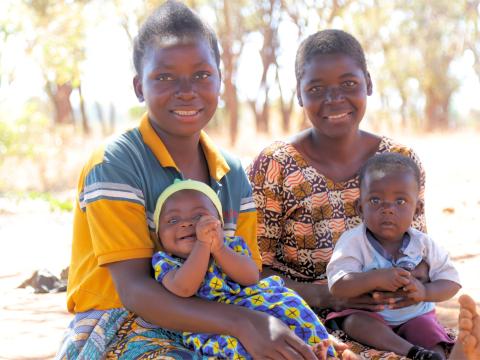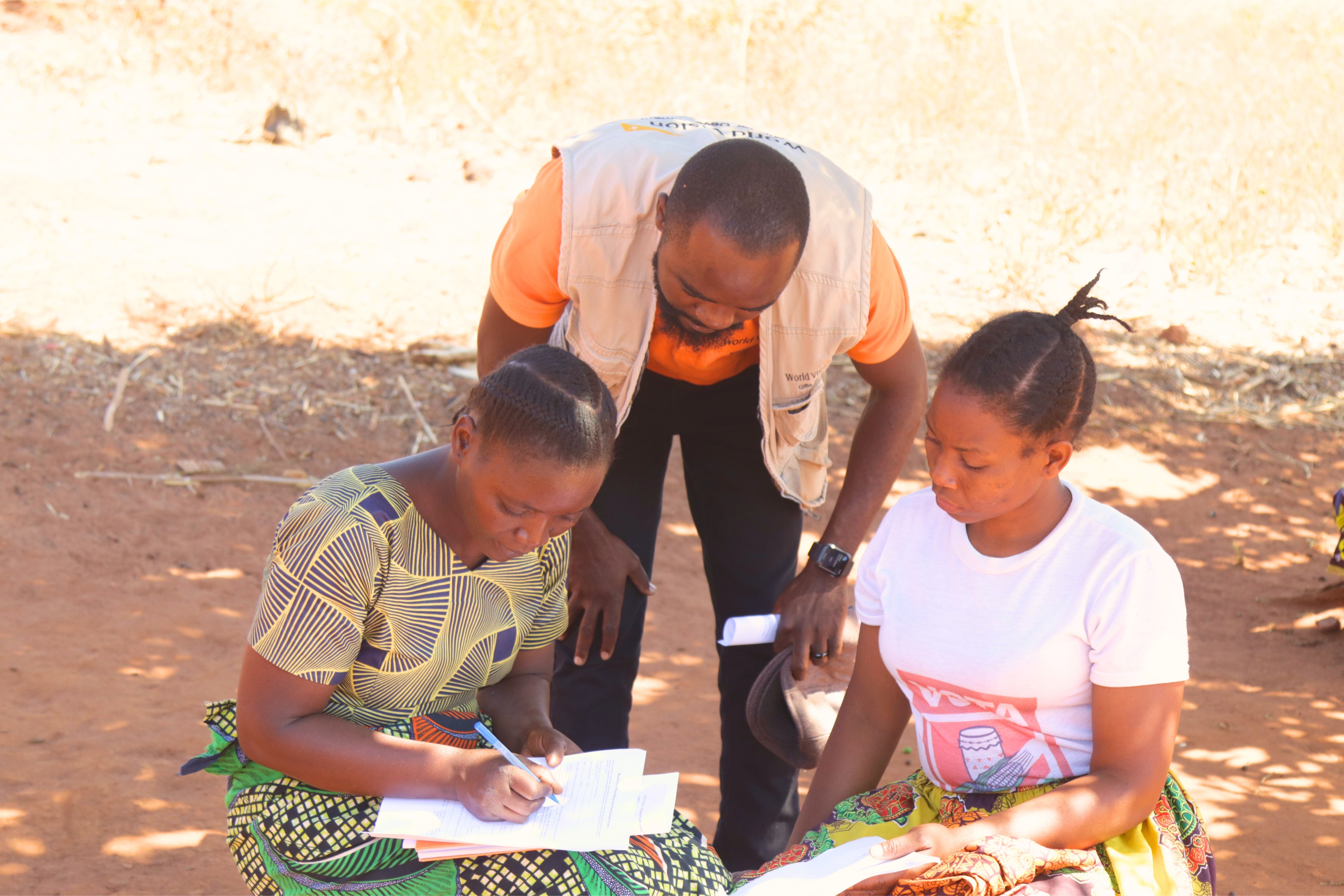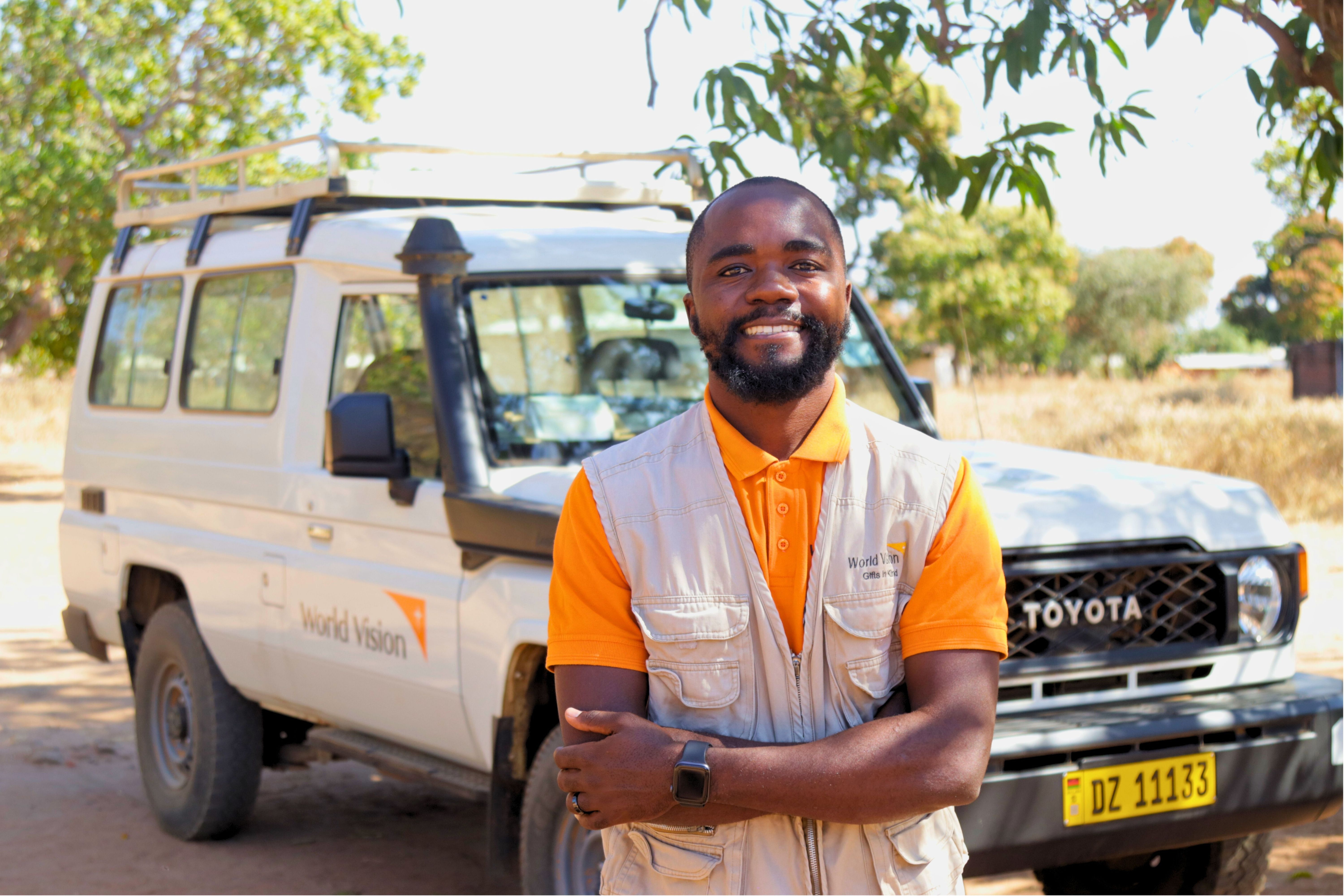Tamala And Ethel’s Fight For Breastfeeding Amidst Climate Change

By Bernard Kankhono,
World Vision Malawi Communications Officer
Ethel and Tamala from Salima are close friends. The two have relied on each other for a long time, sharing both joys and hardships. Coincidentally, they also discovered they were expecting children around the same time.
When the 2024/2025 rainy season arrived, the two women shared another hope of a good harvest that would provide enough food for their families.
"In December 2024, when the rains started, I planted maize on my one-acre field. I hoped that by harvest time, I would have enough food to feed my family, including the baby I was expecting, “says Ethel.
Both Tamala and Ethel, who cultivated similar-sized fields, expected to harvest at least 30 bags of maize or more. But things didn’t go as planned. A monthlong dry spell in February, 2025 in their area destroyed their crops before they could fully mature. By the month of April 2025, both Ethel and Tamala, now four months into motherhood and breastfeeding, had only managed to harvest a single bag of maize from their fields. They were forced to start buying maize from the market just to survive.
In Malawi, unpredictable rainfall patterns due to climate change have made life harder especially for breastfeeding mothers like Ethel and Tamala, who struggle to maintain exclusive breastfeeding.
"The health workers advised us to breastfeed exclusively, at least eight times a day. But without enough food, sometimes I can’t keep up," says Ethel.

According to UNICEF in Malawi, hunger and food insecurity in Malawi are harming breastfeeding rates. Data shows that exclusive breastfeeding has dropped from 70% in 2013/14 to just 61% in 2019/20. This decline is tied to worsening breastfeeding and child nutrition, including reduced dietary diversity and meal frequency.
Climate shocks and hunger are making it difficult for mothers to give their babies the strongest start in life through breastfeeding especially in rural areas, where many mothers simply don’t have enough to eat.
Both Ethel and Tamala are among the mothers receiving breastfeeding support from World Vision. Alongside counselling on proper breastfeeding, they are also learning ways to sustain themselves nutritionally while nursing especially when food is scarce.
Evelesi Chasweka, one of World Vision’s breastfeeding champions, says climate change shocks are affecting the drive to promote exclusive breastfeeding.
"One of our biggest struggles is having too few champions to serve large communities, especially at this time when Malawi is grappling with climate change. I urge the government and organizations to train more advocates so every mother gets the support she needs," says Evelesi.
Through ENOUGH Campaign, World Vision is fighting to end malnutrition among under-five children including breastfeeding infants. The campaign works alongside other programs, such as Livelihoods Projects and Maternal, Newborn, and Child Health programmes, across all its Area Programmes. World Vision Malawi Maternal, Newborn, and Child Health Project Officer for Salima Horace Saiwala says strengthening efforts to involve communities in breastfeeding support and malnutrition prevention using a mult-sectoral approach is a key.

"Exclusive breastfeeding is the greatest gift a mother and her community can give a child. But this gift only flourishes when we all work together to make breastfeeding possible especially at this time Malawi is facing climate change shocks," says Saiwala.
Annually, The Breastfeeding Week is commemorated in the first week of August to raise awareness about the benefits of breastfeeding and promote a supportive environment for mothers to breastfeed. In Malawi, the 2025 breastfeeding theme “Prioritize Breastfeeding: Create Sustainable Support Systems" highlights the need to ensure nursing mothers have enough food during this critical period particularly as Malawi faces the impacts of climate change.